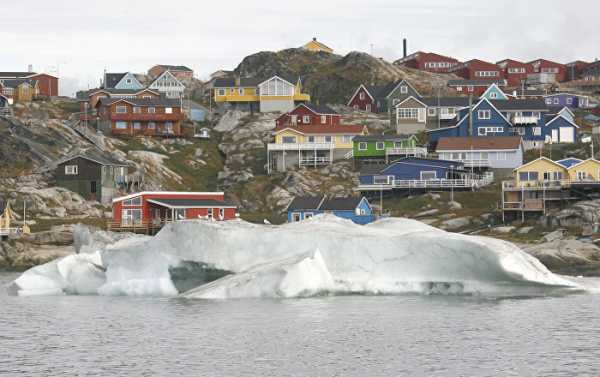
Due to heavy pressure from the US and Denmark, the government of Greenland on Monday chose the Danish government over a Chinese competitor for a lucrative airport upgrade contract.
Following a meeting with Danish Prime Minister Lars Loekke Rasmussen, Greenland’s Prime Minister, Kim Kielsen, announced her government had agreed to let Denmark pay 700 million Danish crowns for a 33 percent stake in state-owned Kalaallit Airports, Reuters reported. Kielsen also agree to let Denmark provide 450 million crowns of credit for the projects and a state guarantee for another 450 million from the Nordic Investment Bank.
Greenland’s decision follows what had been a keen interest in the offer put forth by the China Communications Construction Company (CCCC), a Chinese infrastructure firm that in March made it to the Greenland government’s short list of 11 contenders for the airport revamp, Global Construction Review reported at the time.
CCCC is a publicly-traded company, but according to the company, 63.8 percent of its shares are owned by China Communications Construction Group (CCCG), a Chinese state-owned enterprise, giving the socialist government a foot in the door wherever the company can get contracts.
With a population of only 60,000 and an area of over 830,000 square miles, Greenland relies heavily on air travel to get people and supplies to its many isolated towns. That makes the government’s plan to build three new airports, one of which is in the capital of Nuuk, a high priority. Who knew it would put the ironically-named, frozen, rocky island in the middle of a dispute between world superpowers?
For one, the US maintains several air bases on the island, including Thule Air Base, which operates systems related to missile warning, space surveillance and space control, Defense News noted. The base also hosts a 10,000-foot-long runway and “the northernmost deep water port in the world,” according to the Pentagon.
“We continue to notice significant interest in Greenland by the Chinese,” a US defense official told Defense News when asked about the issue this summer.
“A Chinese presence in Greenland would complicate the U.S. position on the island — ultimately it is not impossible to imagine that China could pressure the Greenlandic government to ask the Americans to leave or demand permission to get a Chinese military or dual-use presence there,” Jon Rahbek-Clemmensen, an associate professor at the Royal Danish Defence College’s Institute for Strategy, told Defense News.
Denmark is likewise concerned about Chinese influence on the island, which is a constituent country of the Kingdom of Denmark, along with the self-governing Faroe Islands.
Europe’s sovereign debt crisis that began in the middle of the last decade created an opening for Chinese investors, who bought businesses and infrastructure at below-market prices. Bloomberg reported in April that since 2008, China has bought or invested in European assets valued at $318 billion, together around 360 companies. That’s not including 355 mergers, investments and joint ventures the publication couldn’t get their hands on information about.
Together, Chinese firms now control roughly 10 percent of cargo port space in Europe, according to the International Transport Forum, facilitated by huge purchases such as a 51 percent stake in the Greek port of Piraeus in 2016, which Greek privatization agency HRADF expects to increase to a 67 percent stake in the next five years.
China “scooped up a bunch of stuff for cheap,” Magnus Nordenman, a regional analyst with the Atlantic Council, told Defense News.
“[L]ater, when there was time for votes in the UN about human rights, all of a sudden these countries started backing off,” he said.
The Chinese “are players in the world economy, as are others, and should be treated equally. But we are on our guard,” Danish Defense Minister Claus Hjort Fredericksen said in June. “Of course, we welcome cooperation with China in the commercial field. As long as it has commercial purpose, we are not opposed to that. That is a normal way to expand world trade… But we are very careful looking at the issues if these installations may have other purposes, and that is what is causing trouble.”
“The big fear is that even a small Chinese investment will amount to a large part of Greenland’s GDP, giving China an outsized influence that can be used for other purposes,” Rahbek-Clemmensen told Defense News. In recent years, Chinese firms have invested heavily in the mining industry in Greenland.
The deal has had repercussions in Greenland politics, with the pro-independence party Partii Nalerag quitting the ruling coalition in protest of Danish involvement in the project, Reuters noted. The other coalition parties — Siumut, Atassut and Nuatta Qitornai — supported the prime minister’s decision.
Foreign Policy reported in March that China had unveiled plans for a “Polar Silk Road” as the southern limit of Arctic sea ice creeps further and further north every year. Russia is also investing heavily in the project, with Russian President Vladimir Putin telling the Russian Federal Assembly earlier this year that “Our goal is to make it a truly global and competitive transport route.”
Sourse: sputniknews.com






